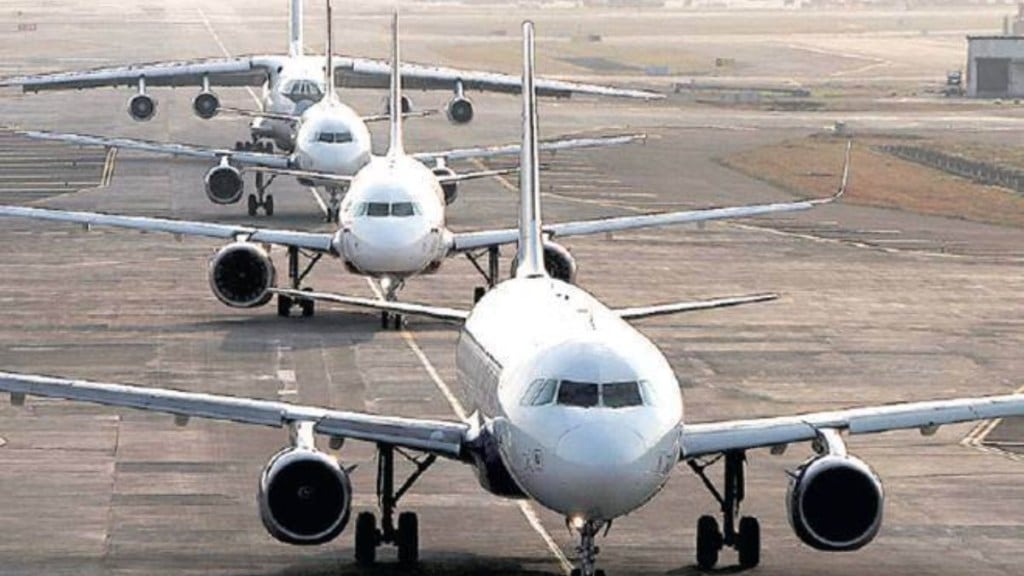Indian airlines are expected to incur additional weekly costs of approximately Rs 77 crore due to rerouted international flights from northern cities, following Pakistan’s decision to close its airspace amid rising tensions after the Pahalgam terror attack. This move is resulting in increased fuel consumption and extended flight durations.
According to estimates by PTI based on flight data and cost analysis, the cumulative monthly operational impact could exceed Rs 306 crore.
Pakistan announced on Thursday that it would bar Indian carriers from using its airspace. As a result, international flights departing from Delhi and other northern cities are experiencing extended flight times of up to 1.5 hours.
A senior airline industry official told PTI that a North America-bound flight, typically lasting 16 hours, now requires an additional 1.5 hours, adding around Rs 29 lakh per flight—this includes landing and parking charges from a necessary technical stop. Similarly, flights to Europe face similar delays, costing an extra Rs 22.5 lakh per trip, while Middle East routes are seeing an additional 45 minutes of flying time, incurring about Rs 5 lakh per flight.
Data from aviation analytics firm Cirium shows that Indian airlines were scheduled to operate over 6,000 one-way international flights in April. Of these, about 800 weekly flights originate from northern Indian cities to destinations in North America, the UK, Europe, and the Middle East.
Out of the total monthly flights, nearly 1,900 narrow-body and some wide-body aircraft flights are destined for the Middle East. With an added cost of Rs 5 lakh per flight, these routes alone contribute roughly Rs 90 crore in additional expenses. For the 1,200 flights to Europe and North America, extended flight durations and higher costs—Rs 29 lakh for North America and Rs 22 lakh for Europe—could result in added costs of approximately Rs 306 crore monthly.
The total estimated additional cost stands at around Rs 307 crore per month or Rs 77 crore per week. These are preliminary figures based on broad calculations.
Beyond the financial burden, longer flight times also create operational challenges such as reduced payload capacity, aircraft availability constraints and crew duty time limitations.
On April 25, IndiGo announced that approximately 50 of its international routes would require schedule adjustments due to the longer rerouted paths. It also suspended flights to Almaty from April 27 to at least May 7, and to Tashkent from April 28 to May 7, citing range limitations with its current fleet.
Other Indian carriers, including Air India, Air India Express, SpiceJet, and Akasa Air, have not yet reported any route cancellations. Air India operates long-haul aircraft like the A350, B777, and B787, while IndiGo leases B787s and B777s for international operations. Air India Express, SpiceJet, and Akasa Air primarily operate narrow-body aircraft such as A320s, A321s, and B737s.

